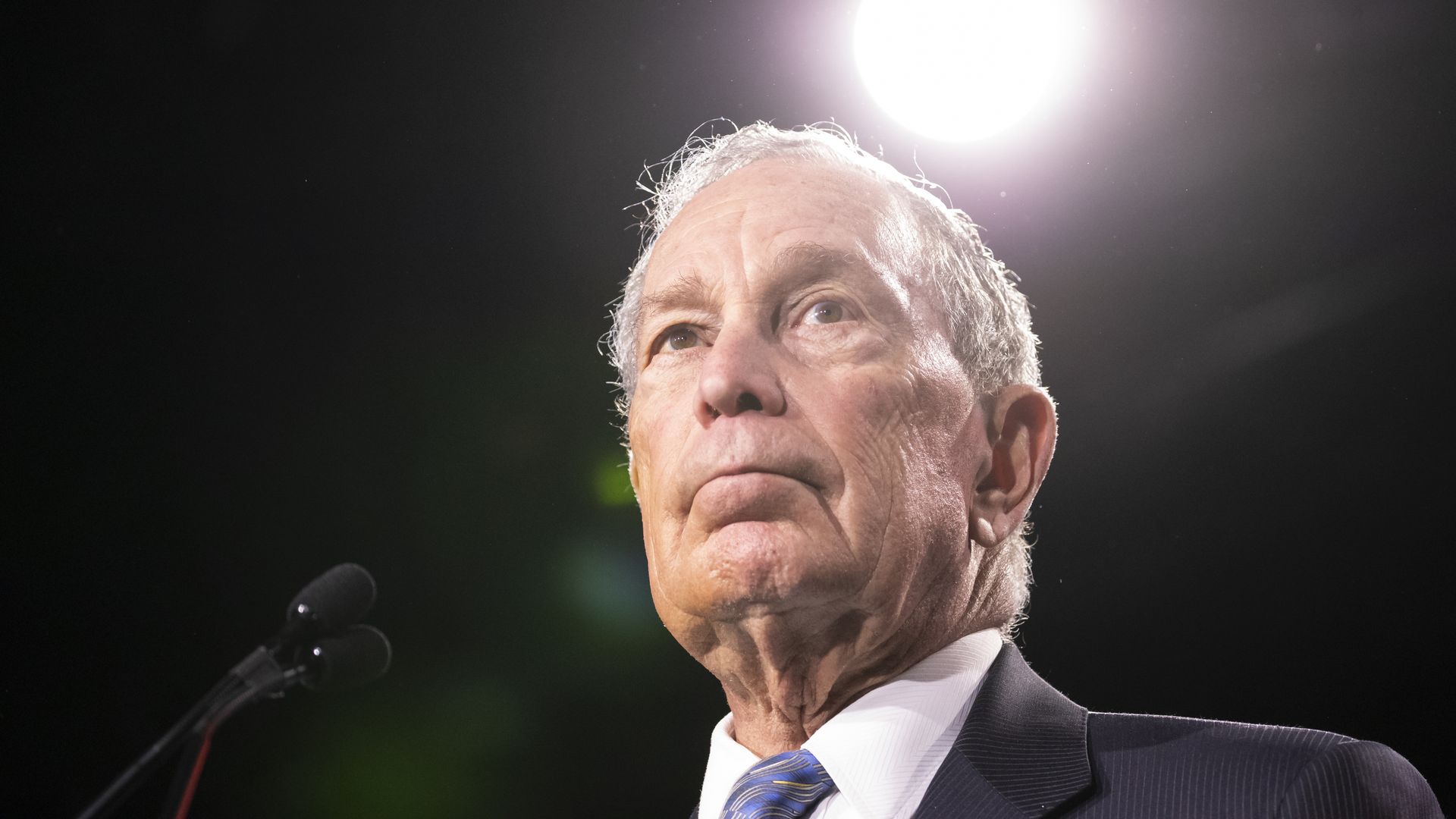WSJ: Bloomberg pays Californians to support him on social media
Add Axios as your preferred source to
see more of our stories on Google.

Photo: Brett Carlsen/Getty Images
Michael Bloomberg's presidential campaign is paying hundreds of Californians to regularly post endorsements about the billionaire on their personal social media accounts and send positive text messages to friends about the candidate on a regular basis, the Wall Street Journal reports.
Why it matters: The effort, which could cost millions of dollars, comes just weeks before California's March 3 primary and is one more tactic in the campaign's broader social media strategy, which includes paying meme influencers on Instagram.
Details: The campaign has hired at least 500 "deputy digital organizers” to promote Bloomberg through daily social media posts and weekly texts to the entirety of their contact lists. The staffers are expected to work 20–30 hours a week for $2,500 a month, according to documents reviewed by WSJ.
- One prompt encourages the digital organizers to promote the candidate's support for same-sex marriage by writing: “The Fight for Equal Rights Has Been One of the Great Fights of Mike's Life."
- Applicants must provide the campaign with their social media handles and make themselves available for phone banking as well.
- The campaign is using the app Outvote, which helps users send pre-written texts, upload campaign materials on social media and send data back to the campaign.
Yes, but: It is unclear whether the digital organizers would need to label Facebook posts as sponsored content per Facebook's disclosure rules.
- A Facebook spokesperson told WSJ that posts by "content creators" would require labels if a campaign paid for them, but posts from campaign employees do not need ad labels.
Our thought bubble, via Axios' Sara Fischer: The strategy highlights an ongoing debate in this election — how platforms and regulators should regulate branded content advertising or advertising that's designed to be more ambiguous to consumers than traditional ads.
- Facebook recently adjusted its policies to account for this ambiguity, saying that politicians that pay for branded posts will have their paid posts archived in Facebook's political ad archive.
- The Federal Election Commission, which has been essentially defunct this cycle due to a lack of commissioners, doesn't have guidelines that address this particular use of social media marketing.
The big picture: The campaign is considering deploying the social media strategy nationwide, people familiar with the matter told WSJ.
Go deeper: Bloomberg's big bet on the power of money
